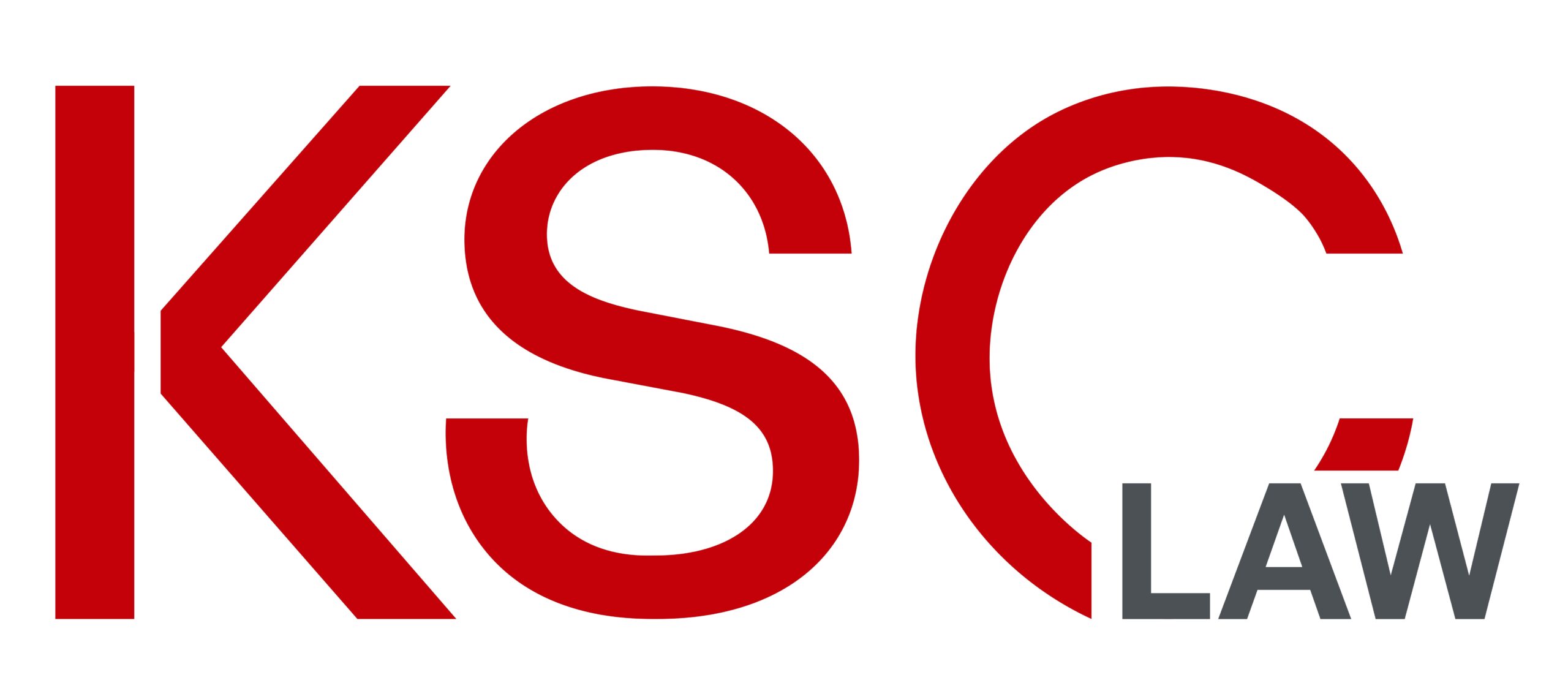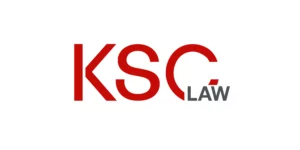By Daniel Russo
Bender’s Labor & Employment Bulletin February 2024
Historic strikes and innovative organizing efforts grabbed much of public media’s labor law attention in 2023. Not to be outdone, however, the National Labor Relations Board (the “Board”) seized the opportunity to repeal Trump-era precedent and proactively enact new worker and union-friendly policies. With a focus on practical implications, this article reviews several critical developments in federal labor law from the past year.
I. Cemex – The New Standard for Elections and Recognition
On August 25, 2023, the Board issued its decision in Cemex Construction Materials Pacific, LLC.[1] The Board overruled prior precedent in Linden Lumber Division, Summer & Co.,[2] finding Linden Lumber, and its reliance on Board-conducted elections as the exclusive means of finding majority support, to be wholly inadequate to safeguard employees’ fundamental right to organize and bargain collectively.[3]
The Board articulated a new standard whereby
an employer violates Section 8(a)(5) and (1) by refusing to recognize, upon request, a union that has been designated as Section 9(a) representative by the majority of employees in an appropriate unit unless the employer promptly files [an RM petition] to test the union’s majority status or the appropriateness of the unit.[4]
An employer now has two (2) choices when faced with a written or verbal demand for recognition:
- Voluntarily recognize the union; or
- Refuse, and file an RM petition within 2 weeks of the demand.[5]
An employer’s failure to timely file an RM petition, or its commission of any ULPs during the critical period, will result in dismissal of the RM petition and/or a Gissel bargaining order.[6] Additionally, the Board will look to evidence of employees’ prior designation of a majority representation by non-election means, including valid union authorization cards. The election will not be re-run. The Board emphasized the fact that an employer’s ULPs during this period prevent a “free, fair, and timely representation election.”[7] Conducting a new election, in the Board’s view, is not an adequate remedy. The Board exhaustively recounted the litany of reasons underlying its rationale.[8]
Following Cemex, employers—including their managers and supervisors—now act at their own substantial peril by refusing to recognize and bargain with a nascent union, and by committing unfair labor practices after a demand for recognition is made. Employers can no longer rely and insist upon Board-conducted elections as a precondition to bargaining.
II. New Election Rules
In August, the Board updated its representation case procedures and rules with the goal of reducing the time between petition to election.[9] The new rules—which went into effect on December 26, 2023 and rescinded the 2019 rules—bump up the time in which a nonpetitioning party must respond to the petition, file a Statement of Position, and when the Board will hold a pre-election hearing.[10] Critically, the new rules eliminate the old “20 business day” waiting period between a Regional Director’s decision and the election. Regional Directors are tasked with scheduling the election at the “earliest date practicable.” See id. The new rules also rescind the petitioning party’s obligation to file a responsive Statement of Position, instead permitting the petitioning party to respond orally during the pre-election hearing.
The new rules are largely a return to election case procedures adopted by the Board in 2014, and likely will result in speedier elections. In doing so, the Board expects that pre-election hearings will occur about ten (10) days earlier than under the 2019 rules. The Board also gave regional directors discretion to allow or deny post-hearing briefing by the parties, eliminating the 2019 rule’s mandate that parties are entitled to file post-hearing briefs. The Board, similarly, hopes that doing so will expedite the election process and eliminate unnecessary inefficiencies.
III. Joint-Employer Status More Easily Established by Employees and Unions
On October 27, 2023, the Board revised its Final Rule on the standard for determining joint-employer status under the NLRA, making it easier for unions and employees to demonstrate joint-employment status.[11] The new standard is a return to common law principles of agency, wherein employers may be considered joint employers if the employers have the authority to “share or codetermine those matters governing employees’ essential terms and conditions of employment.”[12] By including “reserved control” in the analysis, the new rule looks at the employers’ authority regardless of whether this authority was actually exercised.[13]
The former rule, promulgated in 2020, made it easier for employers to evade joint-employer status by mandating that each joint employer “possess and exercise . . . substantial direct and immediate control” over the employee(s) at issue.[14] The Board will now look beyond whether the alleged joint employers actually exercise this authority and control, to whether these entities enjoy “reserved control” over the same employees’ essential terms and conditions of employment.[15] The new rule becomes effective February 26, 2024, but does not apply retroactively to pending charges.[16]
IV. Stericycle: Employer Work Rules and Policies No Longer “Always Lawful”
On August 2, 2023, the Board issued its long-anticipated decision in Stericycle, Inc., revising the standard for determining the lawfulness of an employer’s work rules or policies.[17] The Stericycle Board overruled the agency’s 2017 decision in Boeing and tossed the Boeing Board’s purported balancing test, finding it gave too much weight to employers’ asserted interests and excused overbroad rules that were not narrowly tailored to the employer’s legitimate and substantial business interests.[18] The Boeing decision also led to the perplexing acceptance of “always lawful” work rules, like “employee civility” or “confidentiality” rules, regardless of these rules’ tendency and/or impact on employees and their statutory right to engage in protected activity.[19]
The Board revived, revised, and built upon its 2004 decision in Lutheran Heritage,[20] which recognized the economic reality that employees often understandably construe an employer’s work rules to prohibit engagement in protected activity out of fear of discipline or discharge.[21]
Now, under Stericycle, Inc., the burden first rests with the General Counsel to prove that an employer’s challenged rule has a “reasonable tendency” to chill or infringe on employees’ exercise of their Section 7 rights.[22] Once the General Counsel makes such a showing, the challenged rule is presumptively unlawful unless the employer can pass a two-part test:
- the employer must articulate its “legitimate and substantial business interests” in promulgating the particular rule(s); and
- that those interests cannot be accomplished with a more narrowly tailored rule.[23]
Following Stericycle, the “always lawful” category of work rules has been eliminated. Instead, each particular work rule is subject to scrutiny as to whether it has a reasonable tendency to infringe on employees’ exercise of their Section 7 rights. Given the economic realities at play—that all employees are anxious that they may be disciplined or discharged for speaking up—employers face an uphill battle to justify the validity of their work rules, however facially neutral they may be.
- Overly Broad Confidentiality and Non-Disparagement Clauses in Severance Agreements may Violate the NLRA.
On February 21, 2023, the Biden Board issued its decision in McLaren Macomb, significantly restricting an employer’s ability to bind (former) employees to confidentiality and non-disparagement provisions in a severance agreement.[24] The confidentiality clause at issue instructed employees that they are prohibited from disclosing the terms of their severance agreement to anyone not a spouse or professional advisor, unless lawfully compelled to do so, while the non-disparagement clause provided that the employee may not make any statement that could disparage or harm the employer’s image.[25] Further, the agreement provided for substantial monetary and injunctive sanctions against the employee in the event either provision is breached, including attorney’s fees.[26]
The Board found that these provisions unlawfully tend to restrain employees (and former employees)[27] in the exercise of their Section 7 rights and, in doing so, reversed its 2020 decisions in Baylor Univ. Med. Center[28] and International Game Technology,[29] both of which ignored well-established precedent concerning waiver of employee rights and failed to recognize the tendency of such provisions to restrain or coerce employees (and former employees) in the exercise of their Section 7 rights.[30] Now, an employer violates Section 8(a)(1) “when it proffers a severance agreement with provisions that would restrict employees’ exercise of their NLRA rights . . . regardless of the surrounding circumstances.”[31]
The Board concluded that an employer’s act of simply proffering such an agreement, on its own, violates Section 8(a)(1) because it is an unlawful attempt to deter an employee from engaging in protected activity.[32] Moreover, the Board held that and employer violates Section 8(a)(1) even with “no showing of actual coercion” of the employee. Id. Indeed, though McLaren Macomb’s analysis was limited to non-disparagement and confidentiality clauses, the Board made clear that its decision applies to any severance agreement that contains provisions which may reasonably restrain or coerce an employee’s exercise of their Section 7 rights.[33]
VI. Miller Plastic Products – A Return to “Totality of the Circumstances” for Finding Engagement in Protected Activity.
On August 25, 2023, the Board issued its decision in Miller Plastic Products, Inc.[34] The Board overruled its 2019 decision in Alstate Maintenance,[35] finding it imposed a limited, cramped set of factors[36] to determine whether an employee was engaged in concerted activity, and reaffirmed the standard established in its 1986 decision in Meyers Industries,[37] which looks at all relevant record evidence in order to determine whether an employee’s individual protest and actions had “some linkage to group action.”[38] The Board noted that doing so brings the Board’s test back in line with the text of the NLRA as well as congressional intent in protecting concerted activity and collective efforts of employees to improve their working conditions.[39]
Going forward, the Board will determine whether an employee has engaged in concerted activity through a fact-heavy “totality of the circumstances” test.[40] By doing so, individual employees will have a greater ability to speak up and act with the intent to induce collective action without fear of the Board and its now-abandoned set of Alstate Maintenance factors finding otherwise.
VII. Other Notable Takeaways from 2023
Beyond these precedential decisions by the Board, 2023 also saw the following noteworthy developments:
- An increase in ULP and election filings, up to the highest level since 2016;[41]
- The Board sought and obtained a writ of body attachment for two corporate officials of Haven Salon + Spa to force compliance with the Board’s order;[42]
- NLRB General Counsel Jennifer Abruzzo suggested that the proffer, maintenance, and enforcement of non-compete provisions in employment agreements may violate the NLRA;[43] and
- The Board modified the independent contractor standard under the NLRA to now include numerous, well-established common-law factors beyond simply an individual’s “entrepreneurial opportunity for gain or loss.”[44]
Daniel Russo is an attorney at Kahn, Smith & Collins, P.A. He represents unions and their members in collective bargaining, contract disputes, discharge and discipline cases, internal governance, and other various matters. He also litigates on behalf of unions and employees before Maryland and federal courts as well as state and federal administrative agencies.
[1] 372 NLRB No. 130 (2023) (“Cemex”). Members Kaplan, Wilcox, and Prouty joined Chairman McFerran in the decision. Member Kaplan dissented in part.
[2] 190 NLRB 718 (1971)
[3] Id. at 25.
[4] Id.
[5] Id. at n. 139.
[6] Id. at 26.
[7] Id. at 26 (emphasis in original).
[8] See generally id. at 27-29.
[9] See 88 Fed. Reg. 58076 (2023).
[10] Id.; see also National Labor Relations Board, NLRB Fact Sheet, Representation Case Procedures, available at https://www.nlrb.gov/sites/default/files/attachments/pages/node-9421/20 23-r-case-rule-fact-sheet.pdf (last accessed January 10, 2024).
[11] See 29 CFR § 103.40.
[12] Id. at § 103.40(b).
[13] Id.
[14] Id.; see also National Labor Relations Board, NLRB Fact Sheet, Joint-Employer Standard Final Rule, available at: https://www.nlrb.gov/sites/default/files/attachments/pages/node-9558/joint-employer-fact-sheet-2023.pdf (last accessed January 10, 2024).
[15] See supra at fn 10.
[16] Id.
[17] 372 NLRB No. 113 (2023). Members Wilcox and Prouty joined Chairman McFerran in the decision. Member Kaplan dissented.
[18] Id. at 1-2.
[19] Id. at 6.
[20] Lutheran Heritage Village-Livonia, 343 NLRB 646 (2004).
[21] Stericycle, Inc., 372 NLRB No. 113 at 1.
[22] Id.
[23] Id. at 2-3.
[24] 372 NLRB No. 58 (2023). Members Wilcox and Prouty joined Chairman McFerran in the decision. Member Kaplan dissented in part.
[25] Id. at 2.
[26] Id.
[27] The Board also took the opportunity to reiterate that the NLRA and its protections are not contingent on the existence of an employment relationship and apply with equal force to former employees as well as current employees of a particular employer. Id. at 4, n. 13.
[28] 369 NLRB No. 43 (2020).
[29] 370 NLRB No. 50 (2020).
[30] McLaren Macomb, 372 NLRB No. 58 at 1.
[31] Id. at 7.
[32] Id. (citing Metro Networks, 336 NLRB 63 (2001)).
[33] Id. at 10.
[34] 372 NLRB No. 134 (2023).
[35] 367 NLRB No. 68 (2019).
[36] Those factors included whether the statements/actions at issue were made during a formal meeting called by the employer, and whether the employee was formally complaining or protesting to the employer. As noted by the Miller Plastic Products Board, these factors were improperly dismissive of the reality that employees engage in protected concerted activity through spontaneous, informal means that are also deserving of Section 7 protection. See Miller Plastic Products, Inc., 372 NLRB No. 134 at 6-7 (2023).
[37] 281 NLRB 882 (1986) (“Meyers II”).
[38] Id. at 884.
[39] Miller Plastic Products, Inc., 372 NLRB No. 134 at 6 (quoting Meyers II at 883).
[40] Id. at 7.
[41] See National Labor Relations Board, Unfair Labor Practice Charge Filings Up 10%, Union Petitions Up 3% in Fiscal Year 2023, available at: https://www.nlrb.gov/news-outreach/news-story/unfair-labor-practices-charge-filings-up-10-union-petitions-up-3-in-fiscal (last accessed January 10, 2023).
[42] See National Labor Relations Board, U.S. Circuit Court Directs U.S. Marshalls to Take Haven Salon + Spa Corporate Official into Custody for Refusing to Comply with Board’s and Court’s Orders, available at: https://www.nlrb.gov/news-outreach/news-story/us-circuit-court-directs-us-marshals-to-take-haven-salon-spa-corporate (last accessed January 10, 2023).
[43] See National Labor Relations Board, Memorandum GC 23-08 (May 30, 2023).
[44] The Atlanta Opera, Inc., 372 NLRB No. 95 (2023).







